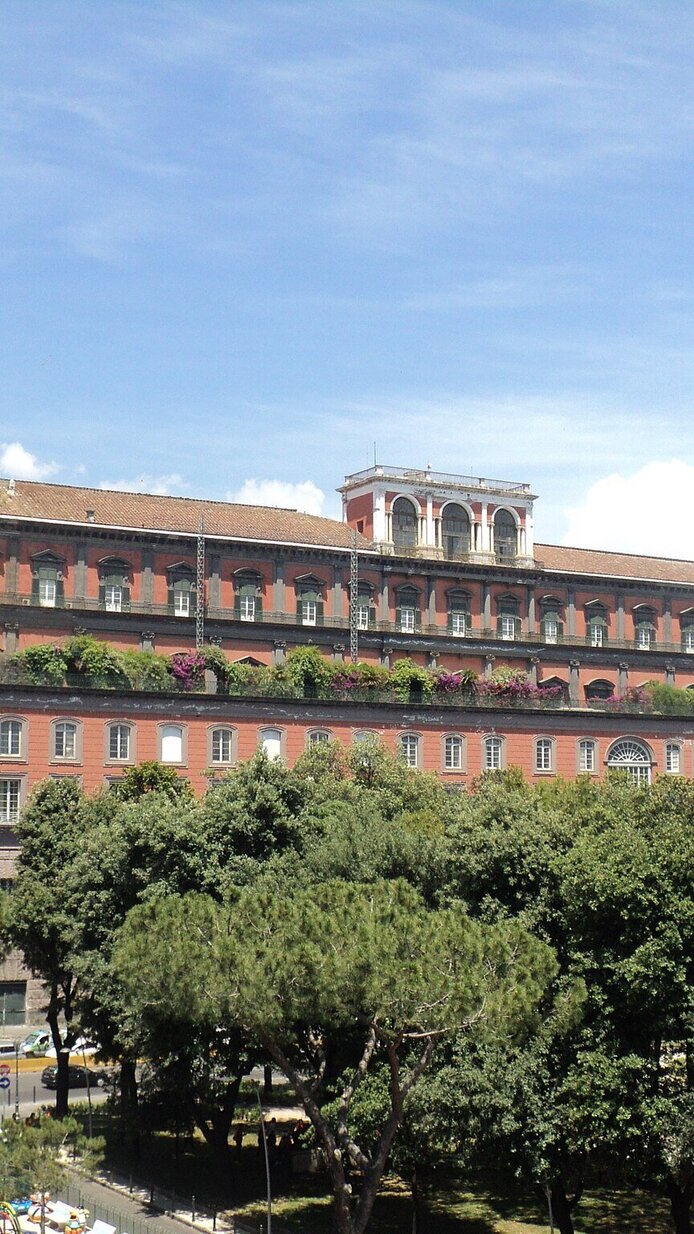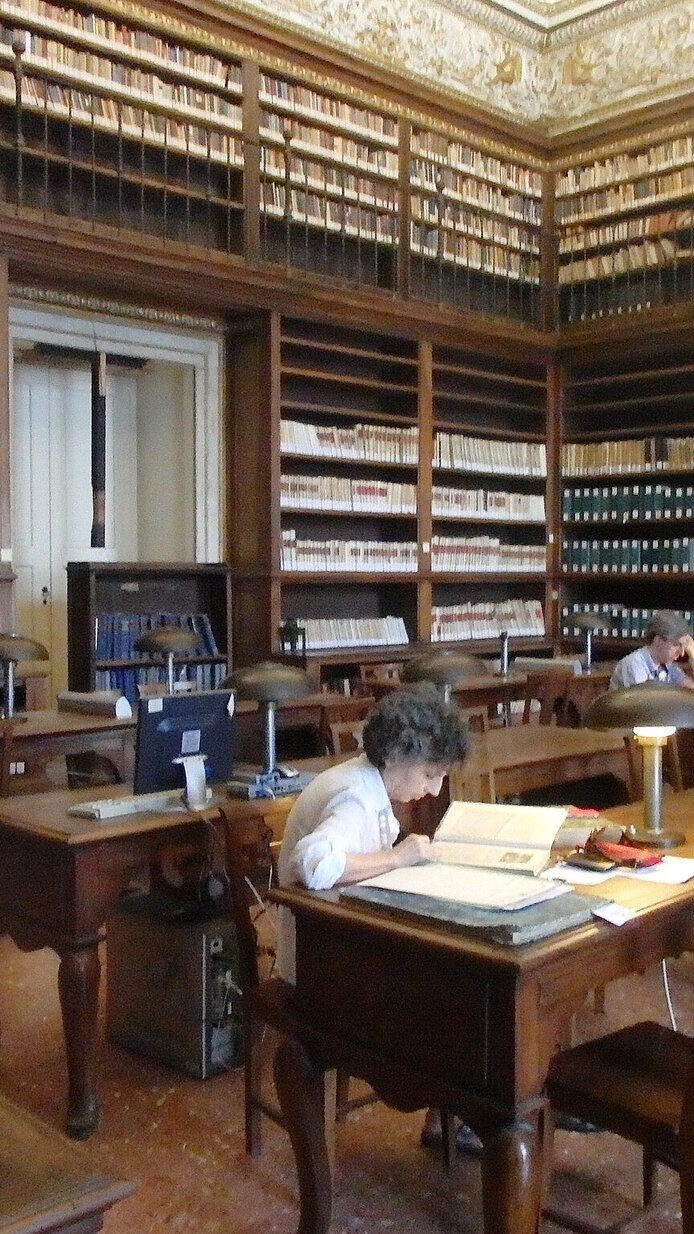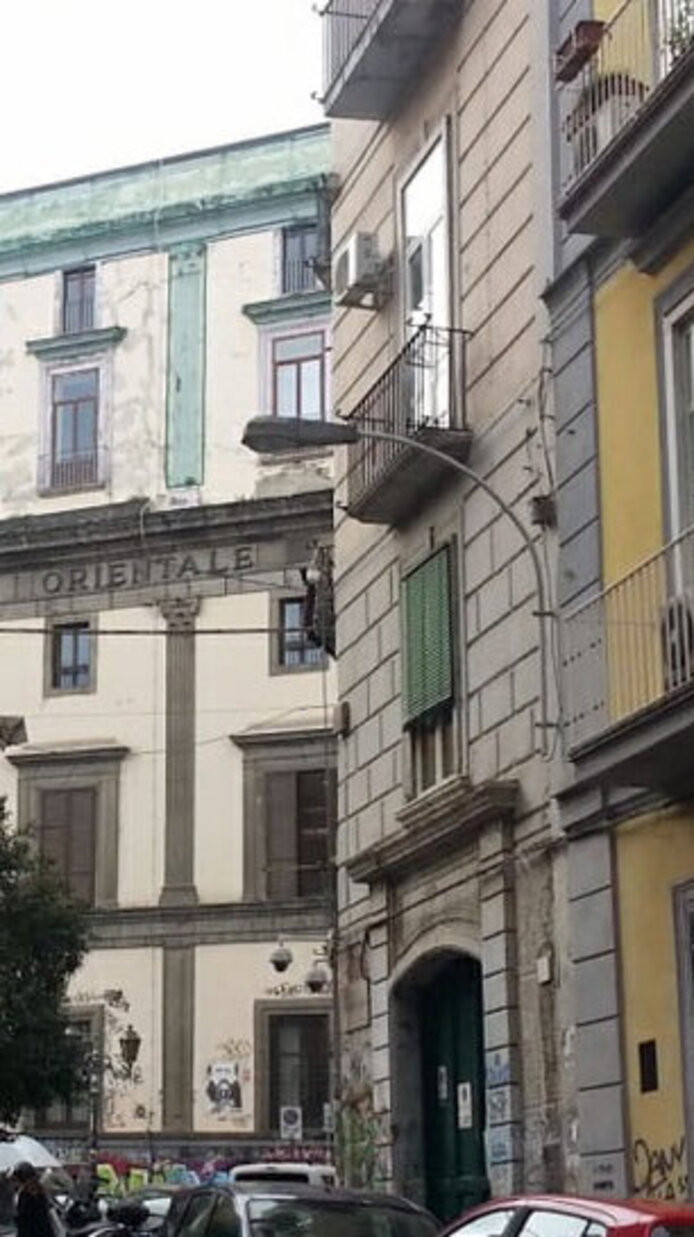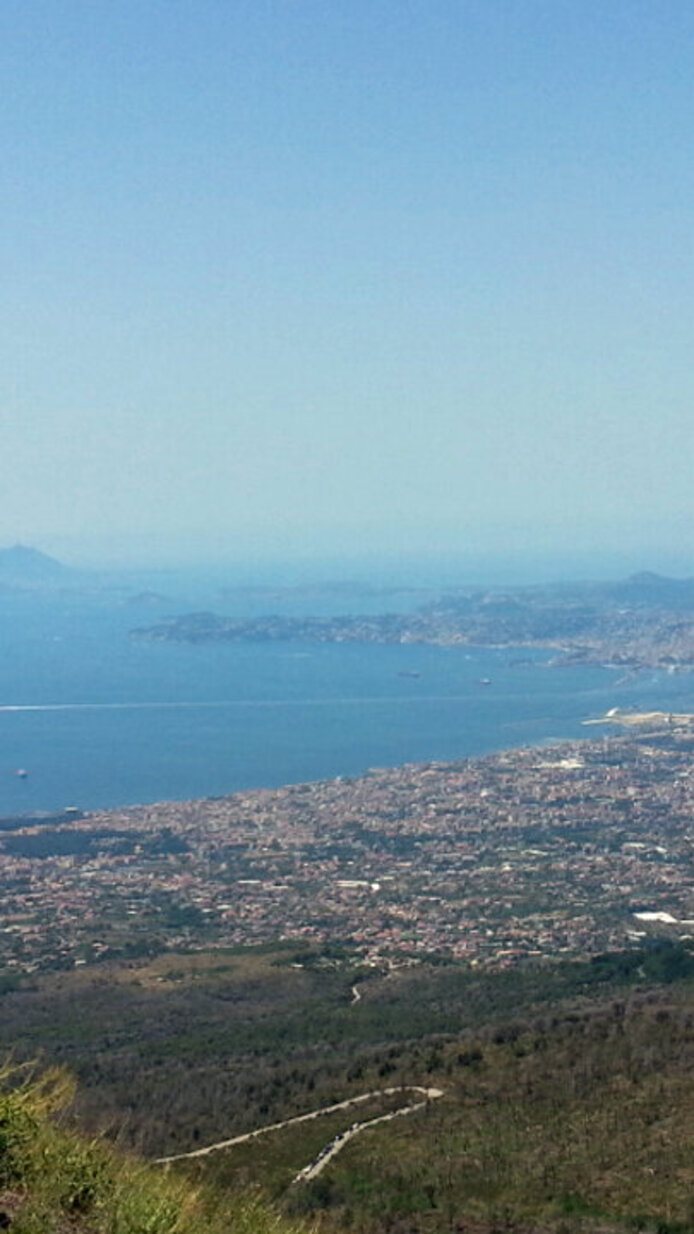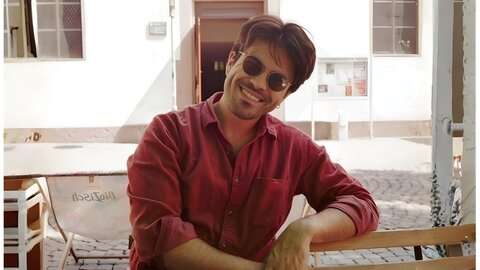The Mediterranean in literature and film
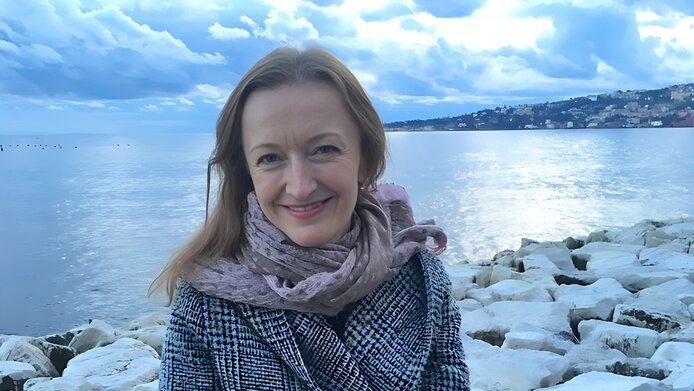
When I decided to continue my research after my doctorate, I was in no doubt that I wanted to spend a longer time abroad. This is hardly surprising, given that my research focus is on Italian literature and cultural studies. The plan was to gain international research experience and broaden my horizon by living and working in Italy. The FWF’s Erwin Schrödinger Fellowship offered me the wonderful opportunity to work at the Centro Studi Postcoloniali e di Genere (CSPG) at the Università degli Studi di Napoli “L'Orientale” as of January 2020.
My research project “The Mediterranean in Italian fiction and film from Verismo to the present” revolves around a cultural studies investigation of representations of the Mediterranean (region) in Italian literature and cinema, starting with the late 19th century “Verismo” and running till today. The central issue is the mise-en-scene of the Mediterranean Sea and/or region in literary texts and films. This includes topics such as travel, stereotypes, perception of space and migration. My project pursues a diachronic perspective and not only involves general considerations of what literature and film can contribute to Mediterranean theory formation, but also aims to explore the different political leanings of literary and cinematic Mediterranean discourses in terms of what remains constant and what changes there are.
My research also extends to issues relating to the aesthetic processes that the authors and filmmakers use to tell their stories set in the region surrounding the Mediterranean. Finally, it is an attempt to show to what extent some of the fiction under study conveys more complex answers relating to a “counter-narrative” of Italian modernity from a Mediterranean perspective.
Fiction, feedback and theory
My project seeks to interweave fictional representations and Mediterranean theory formation. The fact that Iain Chambers, one of the most renowned scholars in the contemporary critical debate on the Mediterranean, was based at the Università degli Studi di Napoli “L'Orientale”, also spoke in favor of choosing Naples as the research base for my stay. Professor Chambers became an incredibly supportive host and was very helpful throughout my stay. I was able to work in a shared office at the CSPG in the Palazzo Giusso in the historic town center and I also regularly spent time in the city's excellent libraries, especially the Biblioteca Nazionale di Napoli Vittorio Emanuele III. Iain Chambers provided inestimable support, for example by establishing contacts with specialized Italianists and by obtaining exemptions during the strict access rules to university buildings during the coronavirus pandemic. Especially the fact that he read individual project chapters and provided feedback was and is infinitely helpful.
The new working environment in Naples has probably challenged me in exactly the right way due to the unforeseeable circumstances during the pandemic and the numerous restrictions that applied (conferences, seminar series and events were canceled or took place in virtual space). It was a lesson in following through with a project, even if the circumstances suddenly turn out to be completely different from what you expected. All in all, I felt that in this difficult situation my working environment was extremely committed, always supportive, dynamic, open and extremely generous.
In the course of my time abroad, I was also able to go on two shorter research visits, first at the “Istituto Nazionale di Studi Verdiani” in Parma, followed by the “Fondazione Verga” in Catania. These experiences enabled me not only to get into contact with renowned experts (e.g. Gabriella Alfieri, Università di Catania), but also to develop new perspectives on my own research activities.
City of contradictions
Outside of work, Naples offered plenty of opportunities for exploring the city, which offers great culinary temptations. When the pandemic-related restrictions were slowly lifted, I was also able to enjoy cultural activities and excursions to the surrounding area, such as to the Sorrento Peninsula or Ischia. Given the countless views of Mount Vesuvius one has from Naples, I really wanted to explore the view from the other side and climb to the top of the volcano. A bus trip followed by a leisurely half-hour hike provided me with a breathtaking view over the gulf and the entire metropolitan region. Another remarkable experience was seeing the opera Aida at the Teatro di San Carlo, especially as Verdi's opera is one of the focus areas of my project.
Overall, I found the Mediterranean metropolis of Naples to be fraught with incredible contradictions, multi-layered and complex. I don't think it can really be comprehended fully; everything and its opposite are at play there at the same time, or at least that's how I experienced it. In everyday life, Naples can also sap your energy at times. The constant background noise and the motorini honking their horns on every corner did not always feel like the exuberant pulse of the city – sometimes they conveyed a noticeable sense of hectic tension. And then again there were those wonderful moments such as walking to the sea in the morning before work or being enchanted by a soap bubble performer in the middle of the Piazza del Plebiscito, doing his tricks to the music of Ludovico Einaudi, or having breakfast at Grangusto with a dear Neapolitan friend.
The Schrödinger Fellowship enabled me to lay a solid foundation for my further research work. Thanks to the many different experiences and challenges, my time in Naples was enormously enriching, both professionally and personally, and I am very grateful for that.
